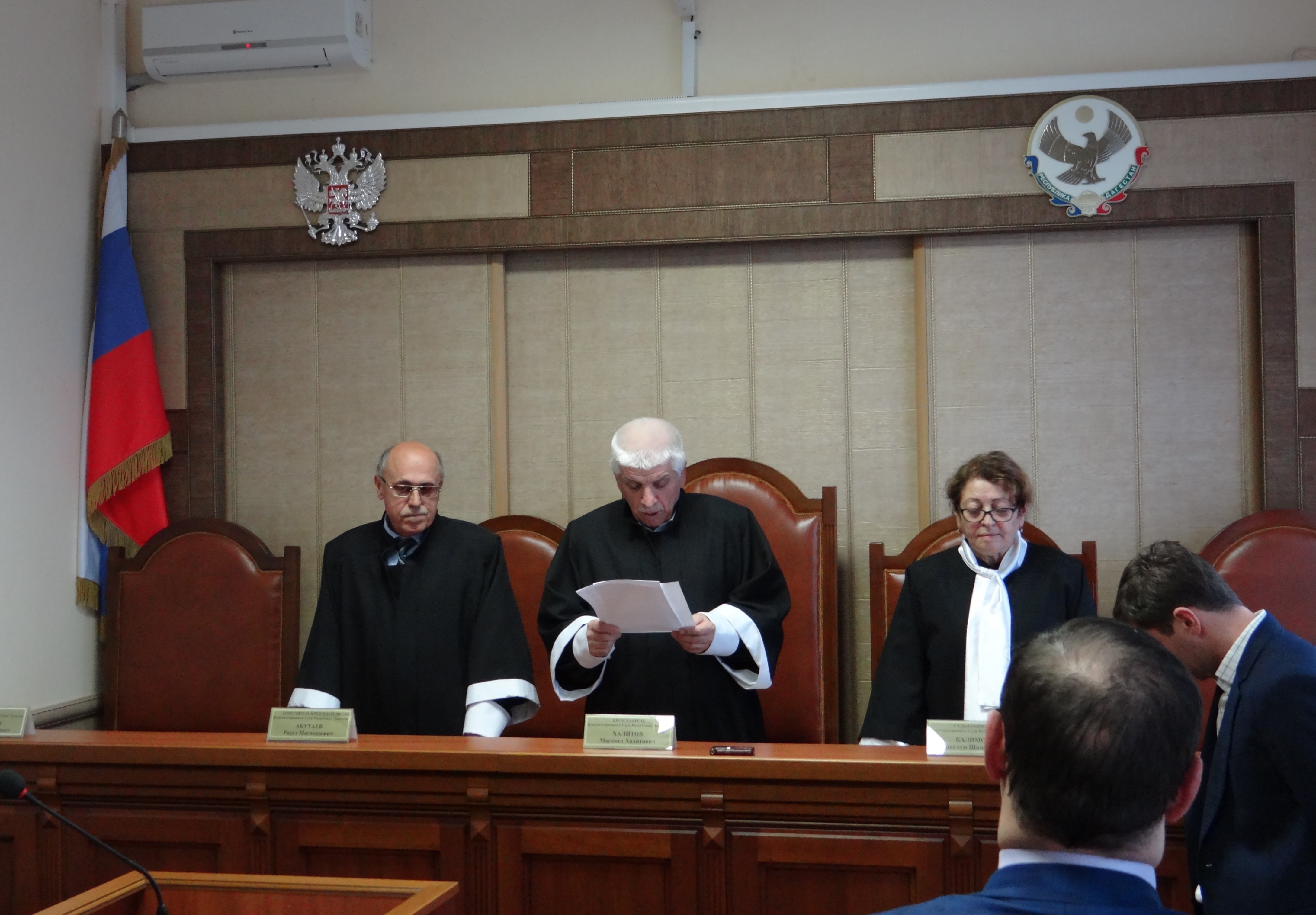
The Constitutional Court of the Russian republic Daghestan has ruled that a ban on protests near government buildings contradicts the republic’s constitution. The case was brought by supporters of imprisoned journalist Abdulmumin Gadzhiyev, who have been repeatedly denied permission to protest in the capital, Makhachkala.
On 18 November, the court struck down articles of the law prohibiting rallies on pavements, at bus stops, and other areas adjacent to government buildings and motorways, declaring it ‘unconstitutional and inapplicable’.
The case was brought by Daghestani lawyer Arsen Magomedov and journalist Idris Yusupov, both members of an initiative group advocating for Gadzhiyev’s release.
Magomedov told OC Media that the Ministry of Justice had refused 500 applications to hold protests in support of Gadzhiyev, citing the law in question. He said that all of these decisions were now being appealed to the cassation court in Pyatigorsk.
‘The authorities are located everywhere throughout Makhachkala, and this is one of the main reasons for the denials [of permission to protest] by the Ministry of Justice of Daghestan’, Magomedov said.
‘Thanks to this decision of the Constitutional Court of Daghestan, we can hold a rally both opposite the investigative committee and the prosecutor’s office’, he added.
Magomedov warned that the decision would not necessarily mean that the initiative group would no longer receive refusals to hold protests, speculating that the Ministry of Justice may find other reasons to deny them permission, for example, related to security.
‘Demonstrations very easily turn into protests’
Marat Ismailov, a lawyer who litigated the case in court, told OC Media that before the hearings began, he requested that Constitutional Court judge Hasplat Rustamov be recused from the case.
Speaking on local state TV station RGVK on 25 September, Rustamov suggested that the law should not always be given preference over the interests of the state.
‘If we give preference to the law as an institution, the process of state erosion in general will begin. Demonstrations [in Russia] very easily turn into protests’, he said.
Ismailov argued that such a position could affect the consideration of the complaint, and Daghestan’s College of Judges satisfied his challenge.
‘Anti-Rally Zones’
According to Arsen Magomedov, it will still not be possible to hold rallies in the central square of Makhachkala despite the ruling.
This is because the Constitutional Court of Daghestan is located in the building of the Makhachkala City Hall, and Russian law prohibits demonstrations near court buildings.
Magomedov told OC Media that he had appealed the law to the Russian Constitutional Court.
He argued that the initiative group planned to hold protests in support of Gadzhiyev on days when the court was not working, and that the protests were not connected to the Constitutional Court.
‘This deprives the constitutional right to freedom of peaceful assembly’, he said.
According to Apologia of Protest, a group providing legal services to those detained at rallies, there are currently bans on holding rallies near state buildings in place in 44 regions of Russia.
They said that ‘anti-rally zones’ had been established at distances of 5–250 metres from state and municipal buildings.
On 6 November, the Constitutional Court of Russia ruled that regional authorities have no right to arbitrarily limit the venue for street rallies. They said that disruptions to transportation or organisations could was not a valid justification for prohibiting rallies.




 20 November 2019
20 November 2019


